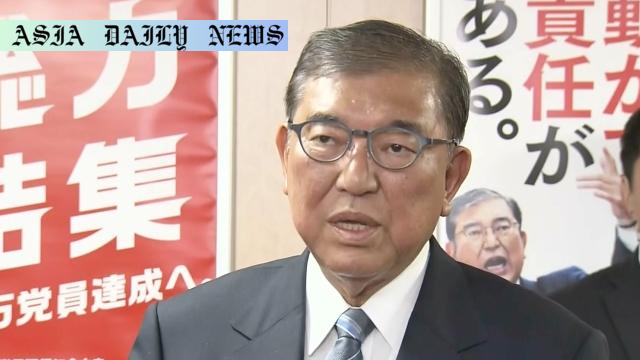LDP Election Loss sparks intense meeting, Ishiba vows leadership amidst internal backlash.
Japan’s ruling LDP meets to analyze recent election loss.
PM Ishiba faces backlash but vows to continue leadership.
New organization to probe causes of LDP’s election defeats.
Calls for a leadership shakeup intensify among dissenters.

Japan’s LDP Faces Internal Reckoning Over Upper House Loss
The Liberal Democratic Party (LDP), Japan’s ruling political faction, convened a critical meeting to address its recent loss in the Upper House elections. This gathering, held at the party headquarters in Tokyo, underscores growing tensions as lawmakers assess both the causes and consequences of their electoral defeat.
Prime Minister Ishiba Shigeru, whose leadership has come under severe scrutiny, led the discussion amidst calls for accountability. Ishiba expressed his commitment to continue steering the government, emphasizing that stepping down would create a political vacuum at a time of significant domestic and international challenges. However, his resolve is being met with mounting pressure from within his party to shoulder responsibility for the loss.
PM Ishiba’s Stance: A Leader Under Fire
During the meeting, Ishiba reiterated his intention to focus on implementing critical agreements, including trade deals with the United States. He also appealed to his party colleagues for unity, emphasizing the importance of stability and continuity in leadership. Despite his assurances, dissenting voices seek immediate changes within the party, pushing for a leadership race to be advanced.
Critics within the LDP, notably from factions historically associated with former leaders, argue that the election loss symbolizes broader dissatisfaction with the party’s current strategy and governance. These dissenters cite not only the recent Upper House defeat but also setbacks in earlier legislative races, reinforcing their push for Ishiba’s exit.
Analyzing the Causes of the Electoral Defeat
Adding a layer of complexity to the meeting, LDP executives announced the creation of a new organization dedicated to analyzing the root causes behind their electoral losses. Party leaders hope that this initiative will identify actionable insights to prevent future defeats. The move reflects an acknowledgment of the need for introspection, though it remains unclear if such efforts will pacify dissatisfied party members and voters.
This newly proposed team aims to explore factors like voter engagement, campaign messaging, and key demographic shifts. While its formation is viewed as a necessary step, some remain skeptical of its efficacy given ongoing internal strife.
What Lies Ahead for the LDP?
The outcome of the meeting could determine the immediate future of Japanese politics. With calls for Ishiba’s resignation growing louder, his ability to maintain authority will depend significantly on mitigating factional divides. Should he fail to appease the opposition within his party, the prospect of an accelerated leadership race becomes more likely.
At the same time, the LDP faces immense pressure to address critical policy challenges, ranging from trade negotiations and economic stabilization to addressing issues on the global stage. Whether the party can effectively navigate these challenges amidst internal turbulence will play a crucial role in shaping its long-term viability.
Commentary
Significance of the LDP’s Election Loss
The recent Upper House election results mark not just a loss for the LDP but a moment of reckoning for a party that has long dominated Japanese politics. Prime Minister Ishiba Shigeru now finds himself at the center of this political storm, and how he navigates the coming weeks could well define his legacy. His decision to remain in office is commendable for its emphasis on stability, but whether it is sustainable is another question entirely.
A Test of Leadership and Unity
In times of adversity, strong leadership becomes paramount. The meeting at the LDP’s Tokyo headquarters highlights deep-seated divisions within the party that could undermine its broader strategic goals. Ishiba’s appeal for unity underscores the necessity of collective effort, but achieving cohesion may be a tall order amid growing internal dissent.
What the Future Holds
It is evident that the LDP must address both its internal struggles and external obligations with urgency. The establishment of a new organization to analyze election outcomes is a step in the right direction, but it must lead to meaningful action if the party aims to regain public trust. Equally critical is how the LDP manages its leadership dynamics in light of escalating demands for change. This moment presents an opportunity for reflection and growth, provided the party can rise to the challenge.


